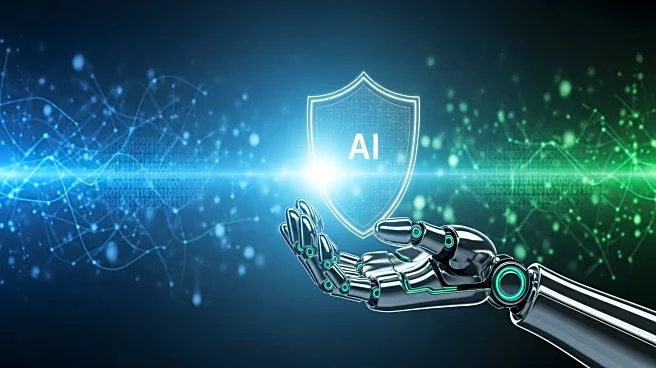What's Happening?
Agentic AI is increasingly being integrated into real-world security operations centers (SOC), moving beyond lab demonstrations. These autonomous software agents are designed to intelligently act on signals, execute security workflows, correlate logs, enrich alerts, and perform first-line containment actions. The technology aims to free human analysts from repetitive tasks, allowing them to focus on higher-level threat hunting and exploration. However, the adoption of agentic AI is not without challenges. Concerns about opaque decision-making, integration complexity, and high costs are prevalent among security leaders. Many organizations are opting for incremental integration of AI capabilities to avoid disrupting ongoing operations, often starting with pilot programs.
Why It's Important?
The integration of agentic AI into IT security is significant as it promises to enhance the efficiency and resilience of security teams. By automating routine tasks, AI can help manage the overwhelming volume of alerts, allowing human analysts to concentrate on more complex security threats. This shift could lead to quicker response times and more streamlined team structures. However, the potential risks associated with AI, such as lack of transparency and high implementation costs, could hinder widespread adoption. Organizations must carefully balance the benefits of AI with the challenges it presents, ensuring that the technology is integrated in a way that supports rather than disrupts existing security operations.
What's Next?
As agentic AI continues to be piloted and deployed, security leaders will need to develop governance models and pricing strategies that support sustainable integration. The focus will likely be on layering new AI capabilities incrementally to minimize disruption. Organizations may also explore ways to enhance transparency in AI decision-making processes to build trust and confidence among stakeholders. The future of agentic AI in IT security will depend on its ability to deliver tangible benefits while addressing the concerns of security teams.
Beyond the Headlines
The adoption of agentic AI in IT security raises ethical and operational questions about the role of human analysts versus automated systems. As AI takes on more responsibilities, organizations must consider the implications for workforce dynamics and the potential need for retraining or reskilling employees. Additionally, the reliance on AI for security decisions could lead to new regulatory and compliance challenges, requiring organizations to adapt their policies and practices to ensure accountability and transparency.









